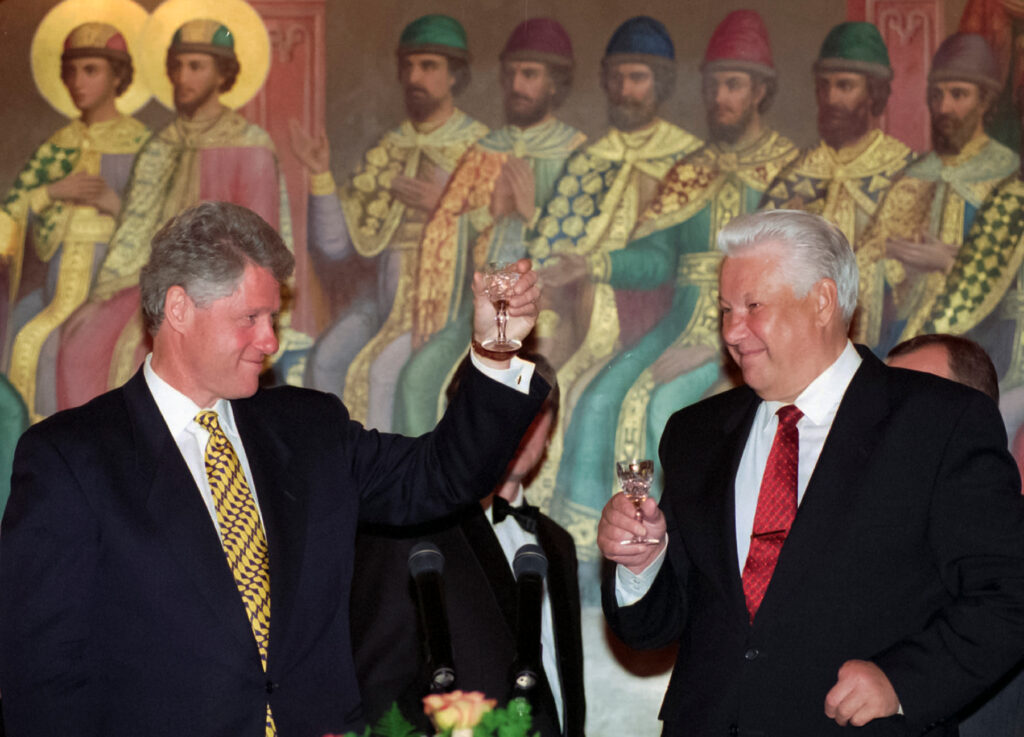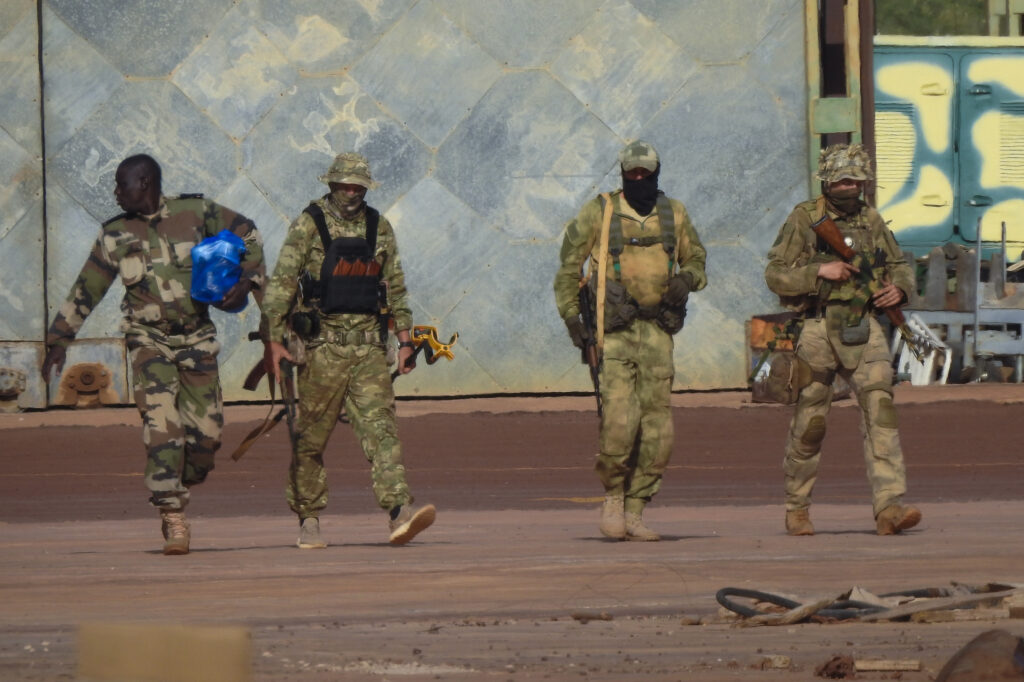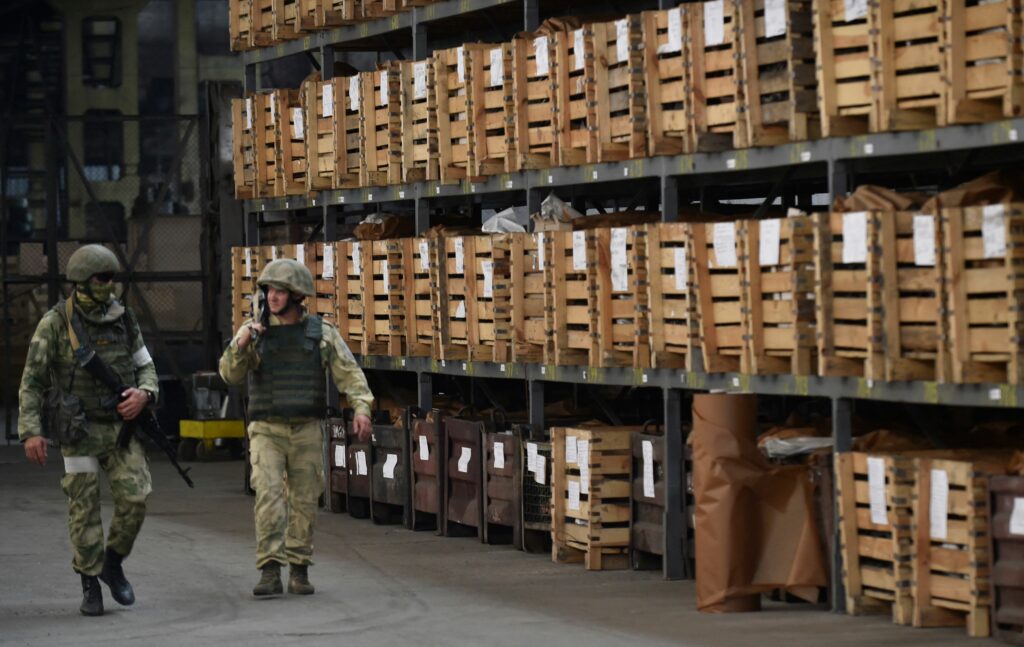In mid-December 1993, elections to the State Duma were held in Russia, this first since Boris Yeltsin violently dispersed the Supreme Soviet during the “October events.” These elections became perhaps the most “democratic” in the entire history of the new Russia. Their results, however, were stunning: the “democrats” were strongly pushed back by radical parties of the left and right wing.
The US leadership watched with apprehension. Strobe Talbott, the chief Russian hand in the Bill Clinton administration, shared his thoughts with the British Prime Minister John Major’s team during his February 1994 visit to Washington. “He (Talbott) had set in hand an exercise within the State Department – though he was most anxious that it should not leak out that US policy towards Russia was being ‘reviewed’”, – wrote Major’s assistant Roderic Lyne.
Lyne also noted that some in the US administration considered it a mistake to talk about a real partnership with Russia. The first such fatalist was Anthony Lake, Clinton’s national security adviser. According to Lyne, Lake believed that Russia “is already going to the bad, and that we should not encourage the Russians to think that they can interfere in various questions in a negative way because we have given them the status of ‘partner’”.
This debate about the future of Russia was certainly reflected in one of the main foreign policy issues of the Clinton administration: NATO expansion. The gradual opening of archival documents of those years allows us to look at this problem anew. Was the Clinton team acting correctly then? And did the US “lose” Russia in the process of NATO expansion?
The second question can be answered unequivocally: no. Russia never belonged to America, so the United States could not lose it. It is obvious that what happened was primarily caused by internal Russian problems: a great power complex, toxic political narratives, etc. But the United States did also play a role in shaping Russian political narratives.
Could Russia have become part of NATO?
Early in his presidency, Clinton was faced with the firm intention of Central and Eastern European (CEE) countries to join NATO. Some (for example, Czech President Vaclav Havel) cited cultural and civilizational arguments of the European community. Others (for example, Lech Walesa) were uncompromising: it is either NATO membership or Poland would disappear into the darkness of Russian neo-imperialism. “Poland cannot be left defenseless,” Walesa told Clinton, – “we need to have the protection of U.S. muscle.” Clinton listened. Given Russia’s obscure transit trajectory, NATO expansion seemed like a good security guarantee for Europe. But how do you calm down Moscow, where they are seriously worried that such an expansion could draw new dividing lines in Europe?
However, it must be noted that both Yeltsin and Foreign Minister Andrei Kozyrev were not opposed. On the contrary, they supported it, but on one condition: Russia was to become a member. In January 1994, Yeltsin told Clinton: “Russia has to be the first country to join NATO. Then the others from Central and Eastern Europe can come in. There should be a kind of cartel of the US, Russia, and the Europeans to help to ensure and improve world security”.
The mentioning of the “cartel” shows what Yeltsin wanted to achieve in foreign policy. His “cartel” was a version of the “Concert of Europe” of the 19th century, that is, the system of international relations, one of the leading places in which was occupied by Russia of Alexander I. Stalin tried to achieve the same in 1945 in Yalta. This is what Brezhnev meant when he told Henry Kissinger: “Look, I want to talk to you privately—nobody else, no notes. (…) Look, you will be our partners, you and we are going to run the world”.
Yeltsin’s “cartel” assumed the recognition of Russia’s status as an irreplaceable power, whose positions should be considered when solving the key problems of our time. True, unlike the Russia of Alexander I and the USSR of Stalin’s or Brezhnev’s times, Yeltsin’s Russia was a great power only on paper. In reality, it was on the edge of financial abyss and needed the support of the West. Desires didn’t quite match possibilities.
Kozyrev believed he knew how to solve this seemingly insoluble problem. He was often criticized as “westerner”, but his “pro-Western” stance was a direct consequence of his “cartel” approach to foreign policy. “Being US partners is the most important thing. Moreover, one must be the first partners of the United States, otherwise nothing will remain of the status of a great power,” Kozyrev said at a meeting at the Foreign Ministry in 1993. That is why he, like Yeltsin, pushed for Russia’s admission into NATO. At a meeting with his German counterpart in May of 1994, the minister rebuked the West for its unwillingness to integrate Russia: “Why did NATO not want Russia? Were there hidden reproaches? Suspicions? Perhaps even enmity?”.
It is clear today that Kozyrev’s assumptions were correct. Besides being wary about Russia, there was something else: NATO feared Russia’s membership would lead to its own collapse. In a recent interview, Malcolm Rifkind, who was in 1992-1997 Secretary of Defense and Foreign Secretary of Great Britain, bluntly told me: “In my own view, I was more sympathetic to the issue than a number of my colleagues, but I had no doubts in my own mind that Russia could never become a full member of NATO without destroying the whole purpose of NATO”.
Kozyrev, of course, was not happy with this attitude from the West. He complained that it would only strengthen the “red-brown” forces in Russia and weaken Yeltsin and his team. At the same time, it should be noted that the idea of NATO membership was supported not only by Kozyrev and Yeltsin; it was popular among broad circles of the Russian elite. Thus, the speaker of the Duma, agrarian Ivan Rybkin, who was trying at that time to balance between Yeltsin and his parliamentary opponents, not only supported Russia’s accession to NATO, but also spoke about a specific method of accession – with the rights of France. In a conversation with French parliamentarians in December of 1994, he explained his position: “When someone talks about NATO expansion, we suggest starting this expansion from the Urals. Or we can talk about our participation in this organization, following the example of France”.
This was referencing how in 1966, on the initiative of Charles de Gaulle, France withdrew from the military organization of NATO, while remaining a member of the political structures of the Alliance (returned in 2009). The “French model” of partial membership was popular among Russian analysts in the 1990s. True, the West then did not hear (or did not want to hear) Rybkin’s proposal. The representatives of Central and Eastern Europe generally believed Russia should never be allowed into NATO.
This attitude naturally irritated Moscow. As Duma deputy Vyacheslav Nikonov put it: “Russia had hoped to be included among the civilized nations of the West, but was allowed to join only those organizations which had shown their ineffectiveness”.
From partnership to confrontation
Two narratives – partnership with the West and confrontation with it pulled the focus of Russian foreign policy in opposite directions. They still coexist with each other, although in recent years confrontational features have dominated. The main purpose of these narratives is to legitimize Russian political elites.
Both narratives to some extent depend on the “recognition” of Russia by the West (primarily by the United States). One assumes recognition as a partner, which gives Russia certain advantages as a member of the “cartel”. Another is recognition as an enemy. The enemy’s status also has its advantages. For example, it makes it possible to “protect national interests” from the encroachments of NATO members. At the same time, the “national interests” are not always constant: the “national interests” of Russia as a “partner” of the West are in many respects different from its “national interests” in the role of the “enemy.”
Russia has never belonged to America, and therefore it could not have “lost” it. But the United States, by its attitude to Russia as an enemy or as a partner, undoubtedly influenced the evolution of Russia’s national interests. Can we say that Russia had a chance to become part of the West in the 1990s, but this was missed? History, of course, does not tolerate the subjunctive. But in this case, it should be noted that the arguments about why Russia would never join NATO and the EU (it is too big, dangerous, infected with imperialism, etc.) were based on Cold War thinking.
It is obvious that in the early 1990s Moscow was eager to join NATO and was ready to consider all options for membership, including the “French” one. Satisfaction of these aspirations carried a certain danger for NATO and would have strengthened Russia’s position in the European security system. Was it worth taking such a risk?
One of the founders of the theory of constructivism in international relations, Alexander Wendt, wrote about how the structures of self-identity are formed under the influence of “practice” in social contexts. Russian self-identity was also determined in the struggle of social narratives. Both narratives (and even simultaneously) served to legitimize political elites.
The narrative of “partnership” was never abandoned: it still exists in the shadow of the narrative of an authoritarian, “anti-Western” Russia. Anthony Lake was right – Russia went “bad”. It is true however that he took part in this process himself. Both parties were involved in the divorce. The Russian elites contributed to it by legitimizing themselves through enmity with the United States; the American elites did so by how they did not give (or did not want to give) the possibility of legitimation through a truly full-fledged partnership.
Clinton turned out to be a “realist”. But by trading ideals for realities, he helped put the locomotive of Russian foreign policy on the track of confrontation with the West.
*This article is based on a study published by the author in the Journal of Strategic Studies










